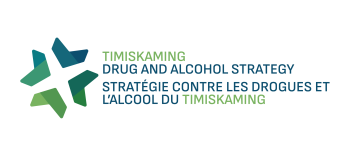I led two lives for decades, working as a ward clerk in a hospital, and a nurses’ aid at a long-term care home, doing my part to help the sick and dying. I loved my work, but it was as though the alcohol kept me alive, managed my pain, mental insecurities and allowed me to function. I should have been able to open up and talk to my coworkers, try to get help. I should have been able to just drop the façade and burst forth my truth, I AM AN ALCOHOLIC. It scared the sh*t out of me if I’m being honest.
Why didn’t I? Stigma was a huge contributor. Dangerously, along with alcoholism comes stigma. I say dangerously because stigma can be a reason to keep people from seeking help, like myself. The term stigma comes from Latin and Greek words that mean a mark on the skin, often made by a hot iron. In ancient Greece, this mark identified criminals, slaves, and outcasts — people who couldn’t be trusted, were dangerous, and had to be avoided at all costs. Today, people with addictions aren’t physically marked with the equivalent of a scarlet “A,” but that doesn’t make the emotional mark any less real.
The stigma of addiction emanates from the negative feelings that many health care professionals believe that people struggling with substance use disorders, and their beliefs that poor personal choices, “moral failing,” and defects of character are to blame for the disease. These feelings and beliefs mirror those of the general public. In turn, the addict becomes to embarrassed to reach out. Studies have shown that health care workers shame people with addictions more than others do. Would a person with diabetes who struggles to control their blood sugar be deprived of the right to work, to provide for their family, or to pursue their life’s purpose? What about the person with asthma who smokes, or the person with heart disease who eats an abundance of fatty foods? I personally could not bring myself to understand why my needing help desperately should be any more embarrassing than someone’s gout problems.
If you think about the way that society looks at addiction in general, whether alcohol or drug use, we are a bunch of LOSERS.
We cannot control the substances we put in our very own bodies, so we must be crazy, “normal” people can have just one beer. I was not one of those people. I felt that I was not worthy of help. Just a drunk failure. The longer I allowed myself to succumb to the disease, the worse my mental and physical health became. And even compared with people suffering from other, substance-unrelated mental disorders, alcohol-dependent persons are less frequently regarded as mentally ill, are held much more responsible for their condition, provoke more social rejection and more negative emotions, and they are at high risk for fundamental judgment.
Conclusion: Alcoholism is a particularly severely stigmatized mental disorder.

